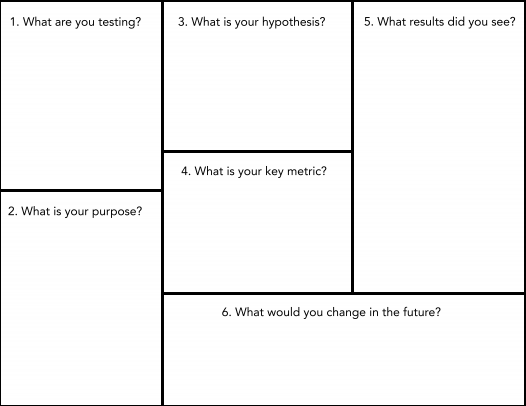Running Marketing Experiments with Purpose
Over the past few years, marketing on the web has become way too much fun. I remember trying to figure out what “hits” on awstats meant in high school, and I distinctly can recall how disappointed I was when I found out the true meaning.
Nowadays, we have a plethora of useful programs that provide deep insight into how visitors use web applications. Many of these programs have a fire hose of data, and it can seem very daunting. I’ve been reading Lean Analytics, and it’s caused me to question some of my habits as a marketer.
The first and most important thing that I’ve been reminded of, is that marketing on the web is all about running experiments based on intuition. I’ve found that the best marketers are ones who are humble and understand that they don’t know everything. Intuition serves a purpose, but be ready to prove it with data.
In short, I believe marketing has become much less risky. There’s not a lot of pressure if you can run experiments all the time – you’re not spending a massive marketing budget only to find out the results are lackluster. That’s awesome!
With this new style of marketing, I believe it’s important to keep track and learn from every experiment (and also keep record). I’ve created a simple guide to follow, It’s a series of simple questions you should ask when running a marketing test. I’ve also attached a PDF that you can download and use for your own tests. Enjoy!
What are you Testing?
This is a very basic question, and is used primarily for categorization purposes. Are you testing a landing page? The color of a CTA? Store these experiments in a way so you can reference them later.
What is your Purpose?
What do you aim to accomplish with your experiments? Are you looking to drive signups, sales, or referrals? If you have no purpose, then you probably shouldn’t be running the test in the first place.
What is your Hypothesis?
What do you expect to happen during this test? This section is valuable because it forces you to develop your intuition. If you find that your hypothesis fails time and time again, consider spending more time asking questions with your customers. Intuition can be learned.
What Metric measures success/failure?
The authors of Lean Analytics wrote a great blog post outlining what a good metric should entail. I highly suggest using this post as a reference when choosing what to track. I personally suggest using sales as a benchmark for your business, after all, the goal of a business is to make money!
What Results did you see?
What happened during the experiment? What did you learn?
What would you change in the future?
If there was anything you could change in the future what would it be?
By running experiments and keeping track of the results, you will become a more effective marketer. Feel free to download a one-page worksheet so you can run marketing tests with purpose!
